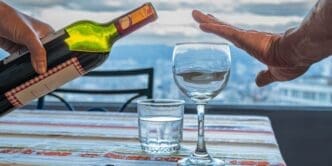Major alcohol companies are strategically responding to a noticeable shift in consumer preferences, marked by an increasing demand for nonalcoholic beverages. Recent data indicates a decline in alcohol consumption, particularly among those under 30, sparking industry giants to expand their portfolios with zero-alcohol options.
In response to changing consumer habits, notable brands have introduced nonalcoholic offerings to maintain market relevance. Heineken launched its Heineken 0.0 in Europe in 2017, later bringing it to the United States in 2019. Similarly, Constellation Brands introduced Corona Sunbrew 0.0% in 2022, following AB InBev’s release of Corona Cero. These initiatives are driven by a growing segment of the population seeking non-alcoholic alternatives for occasions often associated with traditional alcoholic drinks.
The move towards nonalcoholic options has shown promising results. Harold van den Broek, CFO of Heineken, highlighted during an October 2024 earnings call that nonalcoholic sales are accelerating across markets, comprising over 4% of Heineken’s total portfolio. The company anticipates continued growth in this category, which has been increasing by approximately 6% annually since 2018. William Newlands, CEO of Constellation Brands, echoed this optimism, noting Corona Non-Alcoholic as a leader in the nonalcoholic segment during a 2024 earnings discussion.
AB InBev’s CEO, Michel Doukeris, also emphasized the strategic value of nonalcoholic beverages in expanding consumption occasions. The company gained a substantial market share in over 60% of its key markets by the third quarter of 2024, with Corona Cero significantly boosting volume and revenue. Despite the small current volume of nonalcoholic beer globally, Doukeris sees potential for substantial growth.
This shift is particularly relevant amid health concerns and a reported ‘war on alcohol’ following the WHO’s 2023 report linking even low levels of alcohol consumption with increased cancer risk. In light of potential declining alcohol sales, companies are tapping into the nonalcoholic market as a strategic counterbalance. The Boston Consulting Group values the no-or-low-alcohol market at over $13 billion, predicting a growth rate above 7% annually until 2027.
Eliott Edge, bar manager at New York City’s sole sober bar, Hekate, observed a growing demand for nonalcoholic products from diverse clientele, ranging from the sober and sober-curious to those simply taking a break from drinking. Edge anticipates that more bars and brands will follow suit, drawing parallels to the rise in vegetarian or gluten-free offerings.
As consumer preferences continue to evolve, the trend towards nonalcoholic beverages is becoming a significant aspect of the alcohol industry’s strategy. This shift not only reflects changing health-conscious attitudes but also represents a versatile approach to broaden market reach and sustain revenue growth in the face of traditional alcohol’s declining popularity.
Source: Businessinsider








